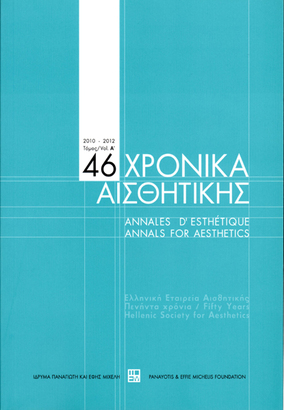Η ωραιότητα του τοπίου σύμφωνα με την αισθητική του Hegel
Part of : Χρονικά αισθητικής : ετήσιον δελτίον της Ελληνικής Εταιρείας Αισθητικής ; Vol.46, No.Β, 2010, pages 27-38
Issue:
Pages:
27-38
Parallel Title:
The beauty of landscape in Hegel’s aesthetics
Section Title:
Αισθητική του Τοπίου - Αισθητική του Περιβάλλοντος/Landscape Aesthetics - Aesthetics of Environment
Author:
Abstract:
Hegel considers the beauty of landscape as an aspect of the beauty of nature, and he defines it in terms of both objectivity and subjectivity. The intuitive spirit has to solve the problem of the beauty of landscape as a problem of many and one. Since the beauty is the sensory appearance of the Idea, and the Idea is the unity of the concept with its (the concept’s) reality, the next category is the space. This space, however, is not the simple physical space defined by science. On the contrary, it is the space of the appearance of the idea and it is accessible to intuition. Further, intuition is the activity of the absolute spirit that views itself in its forms. From the viewpoint of objectivity, landscape lacks aliveness. It consists of the different formations created through the limits of the real objects, such as mountains, rivers, buildings, etc. These formations appear as disparate spaces. From the viewpoint of subjectivity, intuition creates the outline defining the broader, yet fragmented space including all these formations. This is the natural landscape.Why is it intuition that does this? Hegel justifies the role of intuition through recourse to “interest”. As mentioned above, beauty and unity are connected. The unity on the level of intuition is a dialectical stage of the spirit searching for the unity of the concept and, furthermore, of the Idea. Hegel also highlights the relevance of emotions for the development of subjectivity in view of the beauty of landscape. Beauty “appears” as beautiful only “for the intuition”; it is not “for itself”, because it cannot develop self-consciousness.In general, Hegel’s consideration of the beauty of landscape in nature and in art indirectly manifests his knowledge of landscape painting. Furthermore, the way Hegel describes the natural landscape reminds us of the secularised nature corresponding to civil society.
Subject:
Keywords:
τοπία, ζωγραφική, φύση, περιβάλλον




